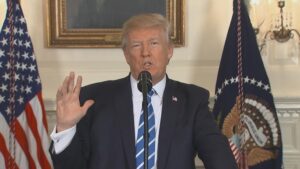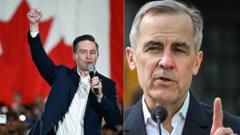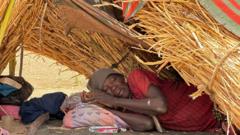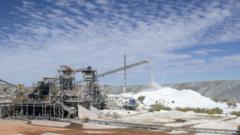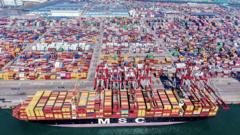As tensions escalate between South Africa and the United States, ANC chair Gwede Mantashe has firmly stated that South Africa is a sovereign nation, rejecting external pressure regarding its land laws. This statement follows U.S. criticisms related to new expropriation policies perceived to disadvantage minority landowners.
ANC Defends South African Sovereignty Amid Rising US Tensions

ANC Defends South African Sovereignty Amid Rising US Tensions
Gwede Mantashe emphasizes the importance of national sovereignty in light of criticisms from the US over land policies.
South Africa's ruling African National Congress (ANC) has publicly defended the nation's sovereignty amidst increasing tensions with the United States over racial issues and a controversial land expropriation law. In a powerful declaration, ANC National Chair Gwede Mantashe asserted, "We are a free country, we're a sovereign country. We're not a province of the United States and that sovereignty will be defended." This statement comes in the wake of U.S. President Donald Trump's criticism of South Africa's expropriation law, which allows the government to seize land without compensation under specific circumstances.
In February, Trump signed an executive order arguing that the law represents a threat to ethnic minority Afrikaners, suggesting it could lead to the unlawful appropriation of their agricultural properties. Conversely, President Cyril Ramaphosa has described the law as a necessary measure to ensure equitable land access for all South Africans.
The controversy has sparked varied reactions domestically, with some citizens appealing for U.S. intervention. Mantashe, speaking at South Africa's Freedom Day celebration in Mpumalanga, called out those advocating for U.S. asylum, suggesting that individuals seeking refuge in the U.S. must consider their stance: "They must go."
Tensions have also played out on social media, particularly on Elon Musk’s platform where he labeled South African land ownership laws as "racist." The existing disparity in land ownership, where a minority white population controls a majority of the land and wealth despite the dismantling of apartheid, remains a contentious point of debate.
In a bid to mend diplomatic relations, South Africa has appointed a new envoy to Washington. Mcebisi Jonas will aim to enhance the country's diplomatic and trade relations with the U.S., following the expulsion of South Africa’s ambassador, Ebrahim Rasool, who accused Trump of engaging in "dog whistle" politics. The strained relations continue to evolve as both nations navigate complex historical and social terrains.
In February, Trump signed an executive order arguing that the law represents a threat to ethnic minority Afrikaners, suggesting it could lead to the unlawful appropriation of their agricultural properties. Conversely, President Cyril Ramaphosa has described the law as a necessary measure to ensure equitable land access for all South Africans.
The controversy has sparked varied reactions domestically, with some citizens appealing for U.S. intervention. Mantashe, speaking at South Africa's Freedom Day celebration in Mpumalanga, called out those advocating for U.S. asylum, suggesting that individuals seeking refuge in the U.S. must consider their stance: "They must go."
Tensions have also played out on social media, particularly on Elon Musk’s platform where he labeled South African land ownership laws as "racist." The existing disparity in land ownership, where a minority white population controls a majority of the land and wealth despite the dismantling of apartheid, remains a contentious point of debate.
In a bid to mend diplomatic relations, South Africa has appointed a new envoy to Washington. Mcebisi Jonas will aim to enhance the country's diplomatic and trade relations with the U.S., following the expulsion of South Africa’s ambassador, Ebrahim Rasool, who accused Trump of engaging in "dog whistle" politics. The strained relations continue to evolve as both nations navigate complex historical and social terrains.

